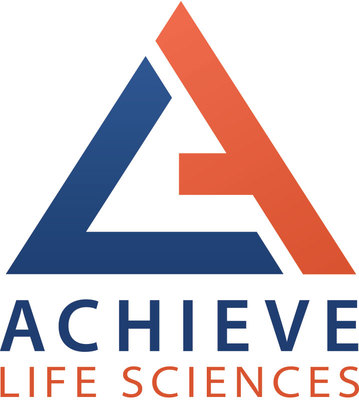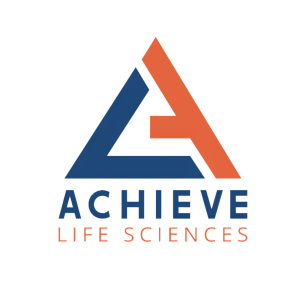Achieve Announces Patent Granted in the U.S. for Novel Analogs of Cytisinicline for Use in CNS and Addiction Indications
Achieve Life Sciences (NASDAQ: ACHV) announced on July 31, 2020, that it has received a patent (US 2020/0172544 A1) for novel analogs of cytisinicline, aimed at treating CNS and addictive disorders. Cytisinicline is a partial agonist of nicotinic acetylcholine receptors, potentially effective for conditions like Alzheimer’s and nicotine addiction. The company emphasizes its commitment to expanding its intellectual property portfolio while addressing smoking cessation. The press release cautions that achieving its goals may face various risks, including regulatory approvals and market conditions.
- Granted a patent for novel cytisinicline analogs.
- Cytisinicline shows potential for treating various CNS disorders.
- Established product with over 20 million users in Central and Eastern Europe.
- Risks associated with achieving product development goals.
- Uncertainties related to regulatory approval and effectiveness of cytisinicline.
- Potential financial challenges in funding development.
SEATTLE and VANCOUVER, British Columbia, July 31, 2020 /PRNewswire/ -- Achieve Life Sciences, Inc. (NASDAQ: ACHV), a clinical-stage pharmaceutical company committed to the global development and commercialization of cytisinicline for smoking cessation, today announced that the United States Patent and Trademark Office has granted Achieve a patent (US 2020/0172544 A1) on novel analogs of cytisinicline, a process for their preparation, and their use in the prevention or treatment of CNS and addictive disorders.
Cytisinicline is a selective partial agonist of nicotinic acetylcholine receptors (nAChRs), which underlies its activity in nicotine addiction. nACHRs are more broadly involved in a range of physiological functions, such as cognitive function, learning and memory, emotion and control of movement. The newly patented analogs provide the opportunity for selective targeting of nAChRs in the brain in order to treat a number of conditions, such as Alzheimer's disease, depression, anxiety, schizophrenia, epilepsy, Parkinson's disease and addiction.
"While smoking cessation and nicotine addiction continue to be our primary focus, it is critically important that we continue to expand our intellectual property portfolio through patent extensions and future potential indications of cytisinicline," stated Rick Stewart, Chairman and Chief Executive Officer of Achieve.
About Achieve and Cytisinicline
Tobacco use is currently the leading cause of preventable death and is responsible for more than eight million deaths annually worldwide1. It is estimated that
Cytisinicline is a plant-based alkaloid with a high binding affinity to the nicotinic acetylcholine receptor. It is believed to aid in smoking cessation by interacting with nicotine receptors in the brain by reducing the severity of nicotine withdrawal symptoms and by reducing the reward and satisfaction associated with smoking.
As an approved, branded product in Central and Eastern Europe for more than two decades, it is estimated that over 20 million people have used cytisinicline to help combat nicotine addiction.
Forward Looking Statements
This press release contains forward-looking statements within the meaning of the "safe harbor" provisions of the Private Securities Litigation Reform Act of 1995, including, but not limited to, the timing and nature of cytisinicline clinical development activities, the potential market size for cytisinicline and the effectiveness and potential uses and benefits of cytisinicline. All statements other than statements of historical fact are statements that could be deemed forward-looking statements. Achieve may not actually achieve its plans or product development goals in a timely manner, if at all, or otherwise carry out its intentions or meet its expectations or projections disclosed in these forward-looking statements. These statements are based on management's current expectations and beliefs and are subject to a number of risks, uncertainties and assumptions that could cause actual results to differ materially from those described in the forward-looking statements, including, among others, the risk that cytisinicline may not demonstrate the hypothesized or expected benefits; the risk that cytisinicline may not be effective in treating a larger breadth of diseases and addictions; the risk that Achieve may not be able to obtain additional financing to fund the development of cytisinicline; the risk that cytisinicline will not receive regulatory approval or be successfully commercialized; the risk that new developments in the smoking cessation landscape require changes in business strategy or clinical development plans; the risk that Achieve's intellectual property may not be adequately protected; general business and economic conditions; impacts from the COVID-19 pandemic; and the other factors described in the risk factors set forth in Achieve's filings with the Securities and Exchange Commission from time to time, including Achieve's Annual Reports on Form 10-K and Quarterly Reports on Form 10-Q. Achieve undertakes no obligation to update the forward-looking statements contained herein or to reflect events or circumstances occurring after the date hereof, other than as may be required by applicable.
Media Contact
Glenn Silver
Email: Glenn.Silver@Finnpartners.com
Telephone: 1 646 871 8485
1 World Health Organization. WHO Report on the Global Tobacco Epidemic, 2019. Geneva: World Health Organization, 2017
2 Annals of Epidemiology, Volume 25, Issue 3, 179 - 182.e1
![]() View original content to download multimedia:http://www.prnewswire.com/news-releases/achieve-announces-patent-granted-in-the-us-for-novel-analogs-of-cytisinicline-for-use-in-cns-and-addiction-indications-301103740.html
View original content to download multimedia:http://www.prnewswire.com/news-releases/achieve-announces-patent-granted-in-the-us-for-novel-analogs-of-cytisinicline-for-use-in-cns-and-addiction-indications-301103740.html
SOURCE Achieve Life Sciences, Inc.
FAQ
What patent did Achieve Life Sciences receive on July 31, 2020?
What is cytisinicline used for?
How many users have utilized cytisinicline in Central and Eastern Europe?








